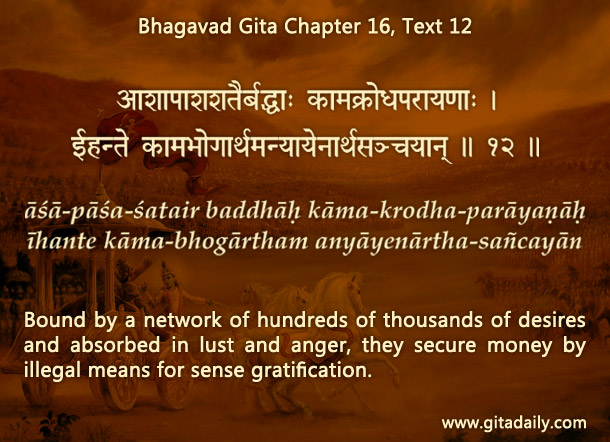Sometimes people may have some addiction such as alcoholism that they feel that they can’t live without. But their feeling that it is essential doesn’t mean that it is actually essential – the feeling simply means that their vision is locked in the gratification the addiction is giving, not the tribulation it is causing.
They need to consciously shift their focus to the consequences of their addiction: “How long can I continue to spoil my time, my money, my health, my relationships, my reputation and my self-respect? How long will I waste my life like this?” They may get this realization that their present lifestyle is unviable, indeed unlivable, when the consequences hit them in some life-shattering manner. Pre-emptively contemplating such consequences can engender in them the conviction: “I can’t live with this – I must change.”
We may not be addicted to gross things like alcohol, but we all have our attachments that can delude and degrade us. Thankfully, we don’t have to go through tribulation to become awakened to our predicament.
Gita wisdom can awaken us far more safely and pleasantly. It (16.12) helps us understand that our desires can act like shackles – shackles that drag us towards immorality and depravity. More importantly, the Gita helps us understand that our innate longing for pleasure – the longing that makes us attached to worldly things – comes from our spiritual essence, our souls. And we can fulfill this longing perennially and perfectly by directing it towards Krishna, the eternal reservoir of the supreme pleasure.
When we cultivate his devotional remembrance by practicing bhakti-yoga, we gradually and increasingly relish sublime fulfillment. Then we realize that what we truly can’t live without is Krishna – not the various worldly objects that we unwittingly held on to as sorry substitutes for him.
To know more about this verse, please click on the image
Explanation of article:
Podcast:


Leave A Comment